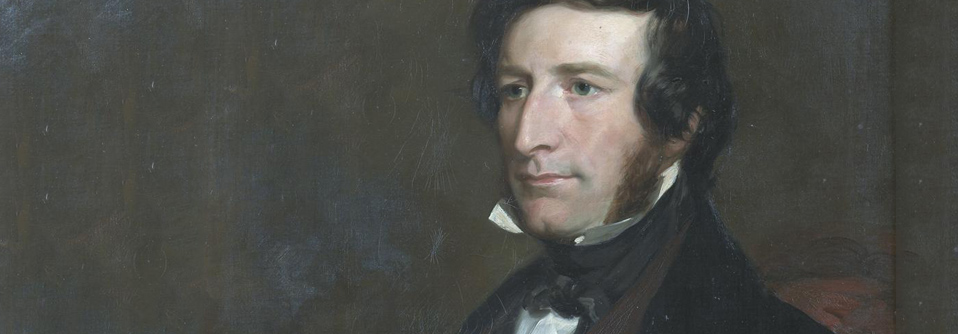The Virtues of Unheroic Government: The Counterfactual Case for Sir George Cornewall Lewis

After many decades of neglect and obscurity, even in his home county of Radnorshire, it appears that the name of the late George Cornewall Lewis is beginning to emerge into the light of a wider public awareness.1 For many a decade it might well have been wondered how many denizens of New Radnor, a few miles along what is now the A44 from Lewis’s seat at Harpton Court, were knowledgeable about the grand monument in the Gothick ‘Eleanor Cross’ style at the approaches of their township dedicated to Lewis’s memory and inaugurated in 1864 as the tribute from Radnorshire ‘To her most distinguished Son’. Parishioners at the splendid parish church on the other side of Harpton, at Old Radnor, where he rests among the Lewises in the crypt, could hardly fail to mark the monumental marble slabs at the west end of the nave proclaiming the merits both of the father, Thomas Frankland Lewis, first Baronet, and the son, George Cornewall Lewis, second Baronet, distinguished as Chancellor of the Exchequer 1855–58, Secretary of State at the Home Office 1859–61, and Secretary of State at the War Office 1861–63. That exalted degree of public eminence, then and since, has never been commonplace in poor, sequestered little Radnorshire. Citizens of Hereford might perhaps be excused for making little of the larger-than-life bronze statue of Lewis, an MP for the county 1847–52, erected in front of their shire hall. And visitors to Westminster Abbey could hardly be expected to notice particularly the bust set up among so many in the North Transept depicting the ‘massy’ features described by Disraeli as ‘antique but not classical’. Lewis fairly takes his place in both the original Dictionary of National Biography, and its replacement, the Oxford Dictionary of National Biography.2 Yet a feeling persists that he deserves better in public memory.
£3.00
or to access all content on this site, join today

For £35 a year you can access all lectures and articles on this site, attend lectures and receive our yearly Transactions
Filter by Volume
Filter by Subject
- 16th Century
- 18th century
- 19th century
- 20th century
- Abertillery
- Acts of Union
- Archaeology
- Architecture
- Arts
- Autobiography
- Bible
- bilingualism
- Biography
- Burma
- Business
- Cardiff
- chemistry
- Climate change
- constitutional
- contemporary
- Cycling
- Cymmrodorion Society
- David History
- David Jones
- Development Bank of Wales
- Devolution
- Dylan Thomas
- ecology
- Economics
- Education
- Edward Lhuyd
- eighteenth century
- Environment
- Film
- Folk Song
- Geology
- health
- Heritage
- Higher Education
- Historiography
- History
- History of Art
- History of Medicine
- History of music
- History of the Book
- history; History
- Horticulture
- Industrial History
- Intellectual History
- Iolo Morganwg
- Islam
- Jews
- John Nash
- journalism
- Language
- Law
- Law constitutional
- Legal History
- Legal Law
- Literary History
- Literature
- Liverpool
- Lloyd George
- London Welsh
- Male voice choirs
- Manuscripts
- Media
- medieva
- medieval
- Medieval History
- Medieval Literature
- medieval Poetry
- Military History
- Museums
- Music
- Myth
- Owain Glyndŵr
- Peter Warlock
- Philadelphia
- Poetry
- political
- Political History
- Politics
- prose fiction
- Railways
- Religion
- Religious History
- Science
- sixteenth century
- social
- Social History
- Sport
- Suffragette movement
- Swansea
- Tourism
- travel
- Tudors
- twentieth century
- Urban History
- Vikings
- Waldo Williams
- Wales
- war
- wellbeing
- Welsh Development
- Welsh development and investment
- Welsh Language
- welsh society
- Welsh writing in English
- Welsh; History
- Wild Wales
- women's history
- WW1
- WW2

